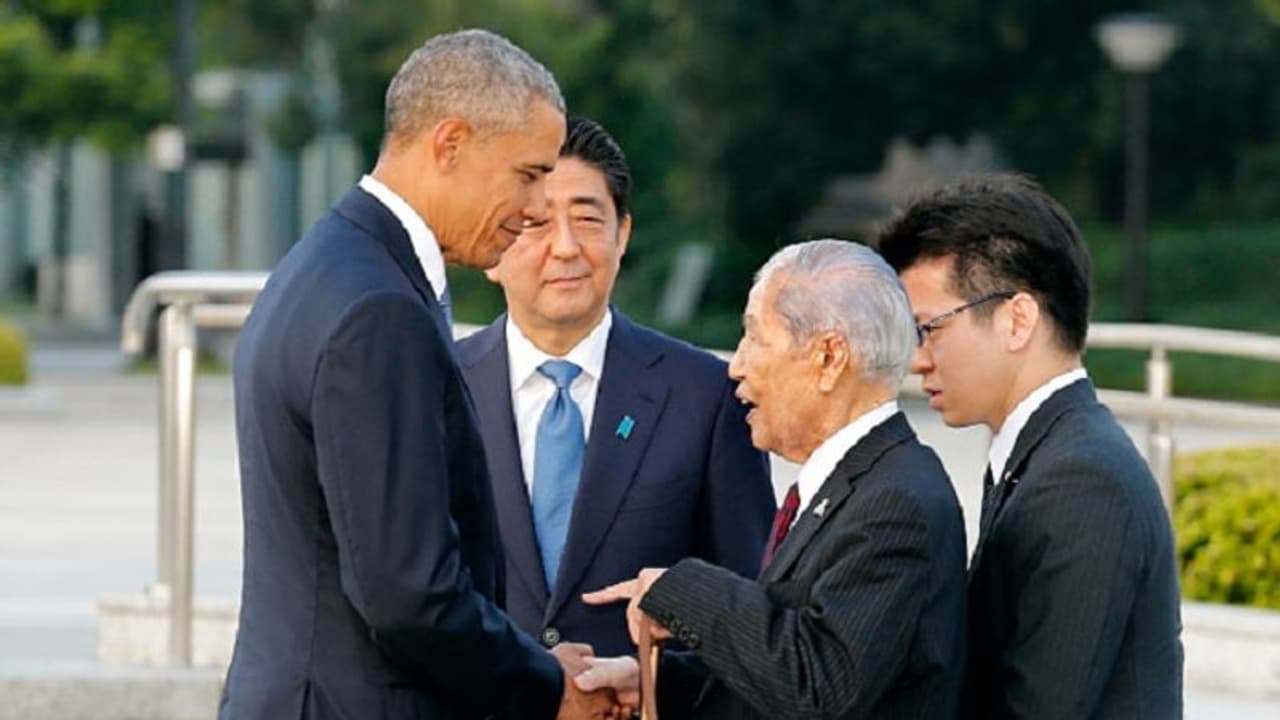Tsuboi was 20 years old when he miraculously survived the US atomic bombing of his hometown on August 6, 1945, in the closing days of World War II.
Sunao Tsuboi, a survivor of the Hiroshima atomic bombing and an influential campaigner for nuclear disarmament, including in a meeting with President Barack Obama in 2016, died on Sunday of arrhythmia caused by anaemia, his family said on Wednesday. He was 96, Kyodo News reported.

Tsuboi died October 24 in a hospital in Hiroshima in southwestern Japan. The cause of death was given as an irregular heartbeat caused by anemia, Nihon Hidankyo, the nationwide group of atomic bomb survivors he headed until his death, said Wednesday.
Tsuboi, who served as a chairperson of the Japan Confederation of A- and H-Bomb Sufferers Organizations, drew international attention in 2016 when he met with then US President Barack Obama during the latter's historic visit to the western Japanese city, the site of the world's first atomic bombing on Aug 6, 1945. When Obama made his historic visit to Hiroshima, Obama and Tsuboi held each other’s hand in a long handshake and shared a laugh, AP reported.
Also read: Japan's Princess Mako finally marries college sweetheart Kei Komuro after years of controversy
An interpreter stood by Tsuboi, a gentle yet passionate man, recalled he tried to talk fast, to tell Obama he will be remembered for having listened to atomic bomb survivors, known in Japanese as “hibakusha.” “I think he is such an earnest person or has the heart to feel for others,” Tsuboi said of the first sitting US president to visit Hiroshima, as reported by AP.
Tsuboi was 20 years old when he miraculously survived the US atomic bombing of his hometown on August 6, 1945, in the closing days of World War II. He suffered such serious burns a part of his ear was gone. When he emerged from unconsciousness 40 days after the bombing, the war was over. He was so weak and scarred that he had to start by practicing crawling on the floor.
The world’s first atomic bomb destroyed Hiroshima, killing 140,000 people instantly and within months. Three days later, the US forces dropped a second nuclear bomb, on Nagasaki, killing another 70,000 people. Japan surrendered on August 15.
He has visited various countries, including nuclear weapon states such as the United States, India and Pakistan, to share his experience of the bombing.
